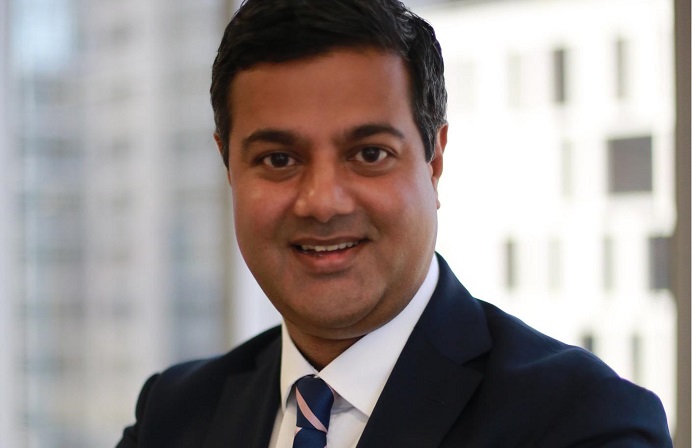
“Finance of the future will be consumed on-demand, through mobile applications, delivered by distributed autonomous institutions…”
FST Media: What are your business and digital priorities for the next 6 months?
Scopelliti: Recently we published a comprehensive report titled ‘Millennials, Mobiles and Money – the forces re-inventing financial services’. We are now focused on translating this world leading research to help financial institutions improve their performance across four key areas. Firstly, digital – how to invest in digital/mobile propositions to better serve customers, secondly, productivity – transitioning and transforming legacy operations with digital technology to improve efficiency. Next, compliance – how to implement sophisticated data analytics solutions that ensure regulatory compliance, prudent risk management, and the highest levels of security, and lastly, innovation – investing in next generation technology, people and processes to stay ahead of the demand curve.
FST Media: What technology or innovation is proving to be the single biggest game changer across financial services?
Scopelliti: Finance of the future will be consumed on-demand, through mobile applications, delivered by distributed autonomous institutions. So the business model of the future must be platform or Finance-as-a-Service based, data intensive and capital light. To effectively deliver Finance-as-a-Service, institutions will have to operate differently and digitally, for example with capabilities such as:
- Software-defined cloud networks that can be reconfigured in real-time by applications to dynamically provide the required features and access
- Analytical platforms that provide access to data and tools so institutions can quickly gain new insights into the customer and turn them into operational actions
- Cyber security and identity platforms to protect highly distributed composite services, personal data and that can evolve to address new and emerging threats
- Digital platforms that reduce the cost, time and complexity of building, deploying and maintaining applications. They also allow institutions to expose data and services to ecosystem partners in a manageable but highly usable way
The prize for executing these capabilities well is a faster, agile, more efficient and relevant institution that is well-positioned to continue evolving and remain successful alongside the ever-changing risk profile of the industry.
FST Media: How can industry executive work towards continued innovation in the finance sector?
Scopelliti: Collaboration is critical, particularly in an industry with an unquenchable thirst for fintech. Yet, only 50% of financial services executives we surveyed reported that their digital tie-ups with partners inside and outside their industry have already proven their value beyond doubt. We are working with industry through the capabilities we have created such as our Gurrowa Innovation Lab in Melbourne, muru-D, a startup accelerator program and our Ventures investment Group.
FST Media: Is it important to have disruptive fintechs as well as those which aim to work hand-in-hand with traditional financial services?
Scopelliti: There is room for both to coexist. Institutions are executing strategies and models based on sharing critical assets – rather than restricting access to them. Collaborative institutions know how to leverage the innovation horsepower of FinTech which is not easily imitated by incumbents, or competitors. They leverage their complementary assets (e.g. balance sheet capacity, capital, scale, customer base, distribution channels, regulatory compliance, and risk management).
FST Media: How can institutions leverage big data and analytics to meet customer demand for personalised products?
Scopelliti: Our research illustrates that to Millennials, personalised financial services are highly valued, particularly through smartphone apps. In a mobile first financial services world, the mobile device is the platform to create a personalised relationship. With advancements in digital technology, increasing affinity with personal mobile devices, it would seem logical for financial institutions to choose mobile as a preferred medium to create personalised financial services. Location intelligence and mobile application analytics are two of the technologies that can provide financial institutions with the insights they need to create personalised services. Both technologies have the potential to help institutions build a strong customer relationship and delivery better consumer experiences.
FST Media: What are the next big things for institutions and why?
Scopelliti: In our Millennials report, we look at technology through life’s remote control – the mobile phone and where institutions will need to digitally transform, in order to compete against platform based, data intensive and capital light business models that are predicted to have the greatest disruptive impact. We outline how emerging blockchain, cloud, analytics, security and digital technologies enable institutions to create networked ecosystems for the provision of transaction, risk management, investment and financing services.
FST Media: Where do you look for emerging technology trends?
Scopelliti: Through Telstra’s capabilities such as our Chief Technology Office, muru-D, Telstra Ventures, Global Industries and extensive partnerships, we are connected into the centres of innovation and development excellence bringing world class technologies and thought leadership to customers. For example, the Commonwealth Bank recently ran a hackathon and Telstra collaborated with them by bringing world leading innovation capabilities from our investments in US based companies such as Kony, TeleSign, DocuSign and Whisper.
FST Media: What is the best career advice you have received?
Scopelliti: Discover your passion, then aim to be the best at it.





